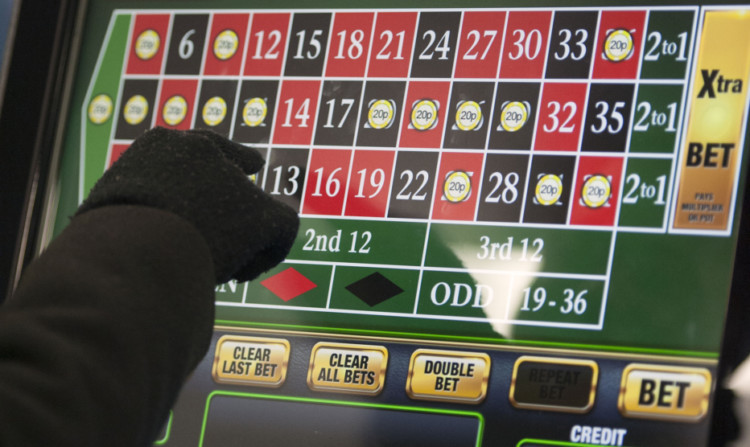Punters in Angus lost more than £1 million in a year playing highly addictive gaming machines.
The latest figures from the Campaign for Fairer Gambling alarmingly show that £1.1m was lost in Angus in 2012 on fixed odds betting machines.
Campaigners blame the rise on gaming firms expanding in poor areas where fixed odds betting terminals (FOBT) widely dubbed the “crack cocaine of gambling” are most popular.
Campaign for Fairer Gambling advocate Adrian Parkinson said: “FOBTs which I regrettably helped to develop have turned betting shops from community hubs into high street casinos.
“They now dominate the market with roulette that runs five times faster than the live game. The addictive characteristics of FOBTs have spurred revenue to grow to over £1.5 billion last year and it is this that has led to an explosion of betting shops on high streets.”
FOBTs offer a variety of old-fashioned puggy-style slot games alongside casino games such as roulette, poker or blackjack.
The minimum bet is £1 and the maximum must be less than the £500 payout. Gamblers can spend £300 a minute on the machines a total of £18,000 per hour.
Bookmakers are allowed to have up to four machines on their premises.
Earlier this month Ladbrokes shelved plans to open another bookies in Brechin following a controversial planning application.
The application was approved but was withdrawn by Ladbrokes due to subsequent difficulties regarding the building’s historical status.
The council had received 16 letters of objection to the plans including worries over “the introduction of gaming machines to target low-income groups/moral concerns.”
The CFG estimates that there are around 330 fixed odds betting terminals across the North-East. Gambling legislation was liberalised in 2005 by the Labour government.
But the party has since accused the gambling industry of exploiting those changes to target poorer parts of the country.
It says fixed-odds betting terminals are acting as a magnet for crime and anti-social behaviour and local authorities should be given new powers to deal with “clusters” of shops opening together.
Leader Ed Miliband has now called for a rethink on the policy over fears it is harming the UK’s poorest communities.
A spokesman for the Association of British Bookmakers said: “Betting is a pursuit enjoyed by millions of working class people throughout Britain and we seek to reach the widest audience possible by being present on high streets.
“We accept there are concerns about these gaming machines and are always open to a constructive dialogue with politicians about the appropriate powers for local authorities.
“The claims of widespread problem gambling on machines is just not supported by evidence.
“The industry continues to develop its approach to harm mitigation for the small number of gamblers who do experience problems.”
The average weekly profit per fixed odds betting terminals in 2012 was £825, up from £760 in 2011, according to the Gambling Commission.
